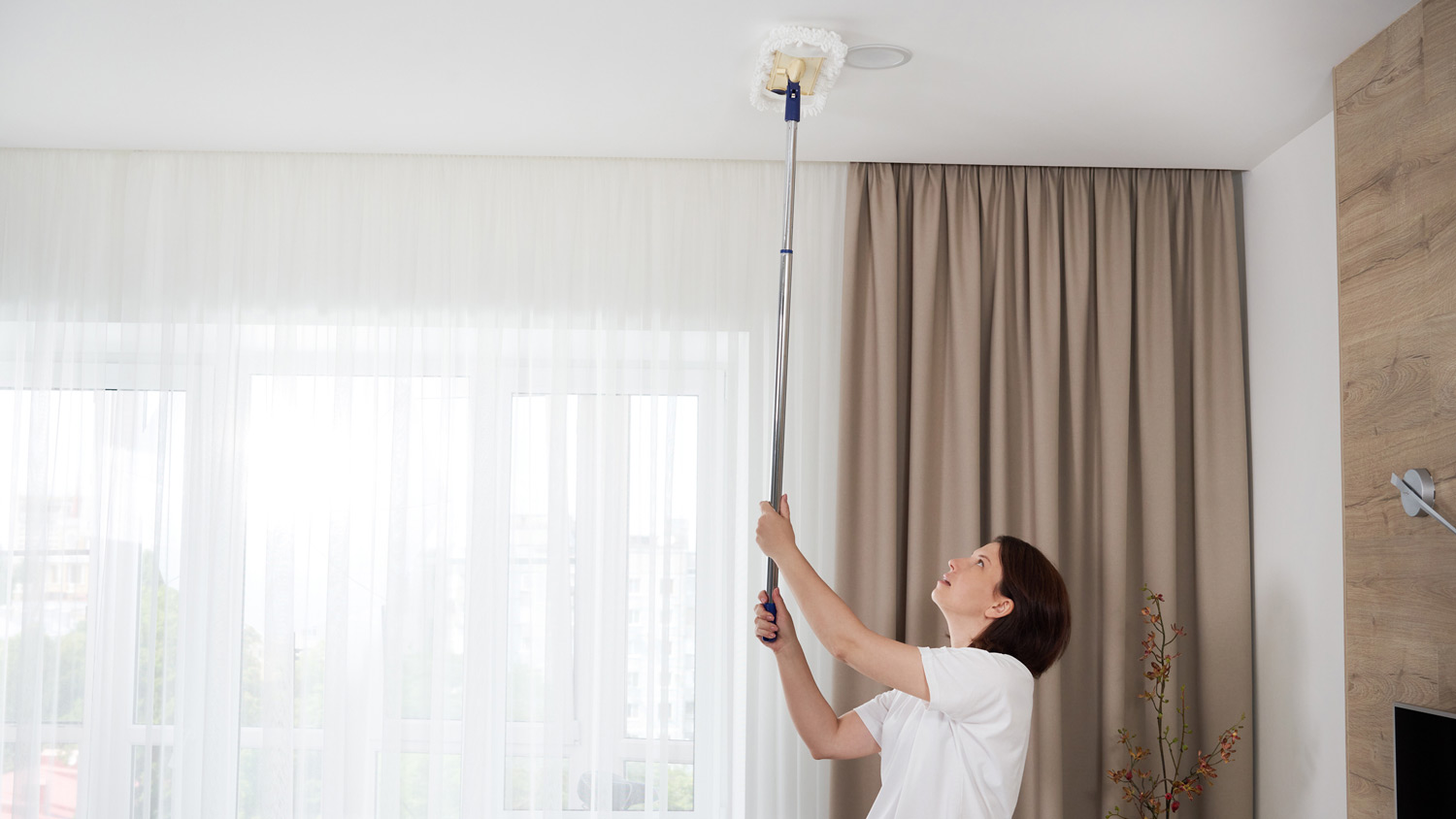
Garage clean-out costs vary considerably depending on the garage size, the waste type and amount, and how much work you do yourself.
This cleaning hack is more sweet than sour


Lemons are a common kitchen favorite—they’re great for everything from adding zest to some grilled fish to serving as a garnish in a glass of ice water. However, even if you’re a lemon fan, you may not know that they can also double as a cleaning powerhouse. The citric acid naturally found in the tart fruit can also be great at tackling some of your toughest kitchen and bathroom problems, including removing hard water stains and other buildup.
Let’s take a look at how lemon juice can help you fight the stuff your water leaves behind.
Lemon is chock full of citric acid, which is commonly found in many different citrus fruits (like lemons, limes, grapefruits, and more). Not only does the compound taste great—it is used as a flavor additive and preservative in some foods—but it can also kill certain bacteria and viruses. Citric acid’s ability to clean and disinfect has made it a long-running favorite for local cleaning professionals and those who like to keep their space spotless.
Just a note: Many people prefer to use the citric acid they get straight from the source over the manufactured kind—you truly can’t beat the smell of fresh lemon. While both types do work, we will discuss the best way to use fresh lemon to remove hard water stains instead of a store-bought cleaning agent.

While you don’t actually need to juice your lemon (some people prefer to clean using a lemon cut in half, while others like to collect the juice from the lemon to fill a spray bottle), you should always start with a ripe, plump, fruit because these lemons will be easiest to juice.
Citric acid can be hard on your skin, especially after prolonged exposure, so it’s always best to don some cleaning gloves before getting started. Even if you think you’ll be very careful and only use a spray bottle and a scrubbing brush, you should always use gloves when working with anything that can irritate your hands.
Not all materials can stand up to the acidic nature of cleaning with citric acid. Avoid using lemon (and other citrus-based cleaners) on the following types of materials:
Granite
Limestone
Travertine
Onyx Surfaces
Marble
It’s also a good idea to spot test before getting started when using lemons or any other new cleaner.

If you’ve opted to slice your lemon in half and use the rind as an applicator, you’ll want to get two even slices. Carefully use a sharp or serrated knife and slice it in half with the two “nubs” of the fruit being on either side of your cut. For those opting to remove the juice and discard the rind, you’ll need the following tools:
A juicer
A bowl to collect the juice
Something to use as an applicator (an empty spray bottle or a sponge will work perfectly)
Citric acid works well on hard water stains (like those found around your faucet or showerhead) and mineral buildup. Figure out which areas you want to attack, and then liberally apply the lemon juice. Let the juice work its magic—you’ll want to let it sit for about 10 minutes for lighter messes and 30 minutes for hard-to-clean spots—before you begin to scrub.
To clean your showerhead, consider removing it and dabbing it with undiluted lemon juice. While the citric acid is working its magic, you should combine a mixture of your remaining lemon juice and hot water in a bucket so that you can submerge your showerhead. Soak your showerhead for 30 minutes before giving it a good scrub.
If your showerhead doesn’t come off, you’re still in luck. Fill up a plastic bag with a lemon juice and water mixture, and then secure it to your faucets or showerhead with a rubber band, submerging your problem areas.
Because hard water buildup can accumulate in the areas around your faucet and knobs, you’ll want to make sure you’re giving your lemon juice a little extra oomph by using a smaller scrubbing tool to get into those hard-to-reach spaces. An old toothbrush works great for these types of jobs.
Another common problem area is in your sink and around your drain. If the water stains lie in the section outside of the drain pipe itself, you’ll want to put a stopper in the drain so you can pour a little lemon juice into your sink basin to soak.
If you’re dealing with buildup or odors that have accumulated inside the drain, you’ll want to make sure you’re using a spray bottle so you have a better shot at targeting your lemon juice application.
Depending on your hard water issues, you may want to either spray lemon juice under the rim of your toilet bowl or empty the water out of the basin so that a concentrated amount of the juice can attack problem areas.
To empty the water out of your toilet, turn off the water supply (the switch is normally located on the hoses that run down the back of your toilet) and then flush until no water fills the bowl. Let the juice sit for 30 minutes, and then use your toilet brush to scrub.
Your tub may also need some extra TLC to eliminate the mess your water can leave behind. It can be a prime location for hard water buildup and a source of lime, grime, and other mineral deposits.
Juice one to two lemons, and then mix your juice with hot water (you’ll want a 1:2 ratio). Spray your tub down or saturate it with a cloth and let it sit for 10 minutes before going over your problem areas with a scrub brush. Be sure to hit your shower’s glass door, and other types of tub surrounds.
If the lemon juice doesn’t seem to have penetrated your stain, you should soak the area again, this time letting it sit for a little longer. While some stains may require a more powerful commercial cleaner, some may just need a second application.
After you’ve soaked and scrubbed your way to a sparkling shine, you should thoroughly rinse away the lemon juice. While lemon juice is acidic in nature, it’s still loaded with sugar, making your surfaces sticky and bringing some unwanted creepy-crawly pests into your home. But don’t worry, you won’t completely wash away that lemony fresh smell.
From average costs to expert advice, get all the answers you need to get your job done.

Garage clean-out costs vary considerably depending on the garage size, the waste type and amount, and how much work you do yourself.

Mattress cleaning cost depends on the number of mattresses being cleaned and the size of each. Use this guide to better understand mattress cleaning prices.

Discover the average acoustic ceiling cleaning cost, what affects pricing, and how to save. Get expert tips to budget for your acoustic ceiling cleaning project.

Discover simple baseboard cleaning tips to remove dust, grime, and scuffs. Learn when to DIY and when to call in a pro for deeper home cleaning.

Get top tips for cleaning a bathroom, from quick DIY tricks to knowing when to hire a professional. Stay fresh, clean, and stress-free.

Keeping tile floors tidy is as easy as following a few simple tricks. Here’s how to keep your tile floors clean (and what to avoid).